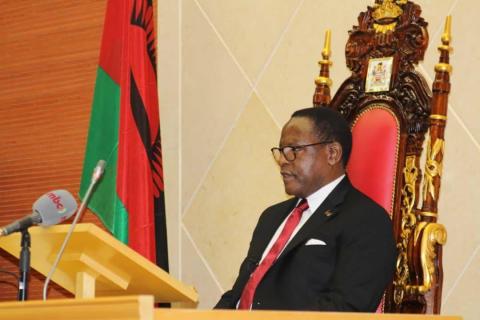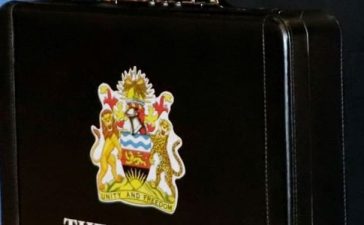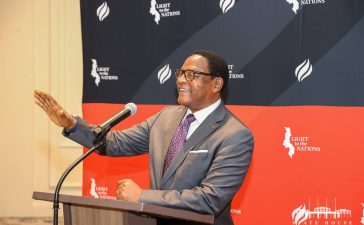A Benin proverb says “there is no god like one’s stomach; we must sacrifice to it every day”. Offering a rhythm of the sense, a Spanish proverb says “an empty stomach will not listen to anything”. Governments that are serious about their business and precede everything else with the welfare of the people ensures that people have food in the country. It is no exaggeration that a hungry man is difficult to govern. When a country is struck by famine, a state of emergency is declared. The effect is that priority focus on Government resources is directed towards securing food for the people. Anything else will make little sense where there is no food. But when you say all this to full stomach, nothing is understood as an Irish proverb goes: “the full person does not understand the needs of the hungry”.
President Lazarus Chakwera understands that the basic and fundamental need that the people require in order to remain governable is food. This is why his administration has put special emphasis on food security.
Talking of food security in a country, it can be secured either through local production or importing from external producers. In any case, producing own food is cheaper and sustainable than importing.
Immediately after assuming power, President Lazarus Chakwera prioritized in ensuring that the poor farming population affords to buy farm inputs (mainly fertilizer and seed). To achieve this goal, government had to pump in money to subsidize the high prices of these critical farming inputs. This resulted into record-high bumper yield among smallholder farmers across the country and food security in general for the country. As prices of these inputs continue to rise on the international market, there is need for government to expand the resources for subsidizing the price to maintain it an affordable range.
This, it appears, has prompted some people to condemn this programme saying it is draining a large amount of government budget hence not sustainable. But as it has been argued above, even if no amount of the budget is spent in ensuring that the country produces enough food, the government will still need to spend billions of money to import food when the country fails to produce for its food sufficiency. The fact remains that without food, the country (and any other country for that matter) cannot do.
Now, President Lazarus Chakwera has put his foot down insisting that his government will spend an extra K70 billion on the Affordable Inputs Programme (AIP), saying it serves the welfare of a majority poor Malawians. This is a clear policy direction that his government had opted in relation to food security and welfare of the poor majority population spread across the rural areas in the country.
The President’s position as expressed through State House director of communications Sean Kampondeni on Monday comes against a background of concerns from experts that the programme was eating a large chunk of the agriculture sector budget at the expense of other investments in agriculture commercialisation.
It also comes at a time fertiliser prices in the country have gone up, meaning that government would need an extra K70 billion on top of the approved AIP allocation of K142 billion in the 2021/22 National Budget to benefit 3.7 million smallholder farming households.
In an interview yesterday after the fortnightly State House Briefing at Kamuzu Palace in Lilongwe yesterday, Kampondeni, who is also the President’s executive assistant, said it was not correct to present expenditure for the welfare of Malawians as being wasteful.
He said Malawians pay taxes; hence, they expect the taxes to translate into public service delivery and the AIP is a public service they need.
Said Kampondeni: “Malawian people are fully aware that there cannot be a public service without spending money and to speak of huge chunks of money, I don’t know what huge chunk is because the entire budget gets spent and we are talking about a fraction of the budget spent on AIP; a public service.”
In the budget, the agriculture sector was allocated K284.4 billion which is 2.8 percent of gross domestic product (GDP), and representing 14.3 percent of the total budget.
One Economist going by the name Milward Tobias said in an interview yesterday that rising fertiliser prices this year should move government to start employing AIP exit strategies. He said the extra K70 billion AIP budget would mean government resorting to domestic borrowing to finance the deficit or the Treasury would let other budget lines suffer by reallocation of some budget resources to AIP. But those are pure book economics which have not even attempted to highlight a fact that despite the government rolling out the same programme last year, the country has recorded a shrinkage in the deficit gap as revealed by the Reserve Bank of Malawi (RBM) Financial and economic Review in the second quarter of 2021. The RBM records that budgetary operations deficit has improved during the second quarter of 2021 by registering a decrease of 1.1 percent of the GDP.
Tobias said: “We have always said that subsidising food security without the exit strategy is catastrophic. There are alternatives to AIP like government’s own plan to establish mega farms and district anchor farms which can lead to sustainable food supply.” While this is very true, beginning with directly empowering the poor farmers to gain a footing of food sufficiency at the household level is key as it solves distribution and access challenges that the poor households may face if national food security is only achieved through stocking national reserves for sale to the population.
In the 2021/22 National Budget, government allocated K142 billion to AIP out of which K126 billion is for the procurement of fertiliser and the remainder for seed and logistics. However, some traders abused the process by defrauding government through faking distribution while the supplies were kept and sold at a common market price. This is what should currently dominate concerns and calls for vigilance on the part of government and all stakeholders. Perpetrators of this kind of fraud need not only be stopped from further receiving such contracts from government, but should also be prosecuted accordingly and thrown into jail. Their firms need to be permanently barred from transacting with government. That’s how this problem can be seriously handled and intended beneficiaries reached out for the intended results to manifest.
Minister of Agriculture, Lobin Lowe, said in a recent statement that the ministry was exploring possibilities of procuring fertiliser directly from suppliers at affordable prices rather than buying from middlemen at high cost. This is expected to reduce the expenditure cost on the part of government and is the right way to go.













